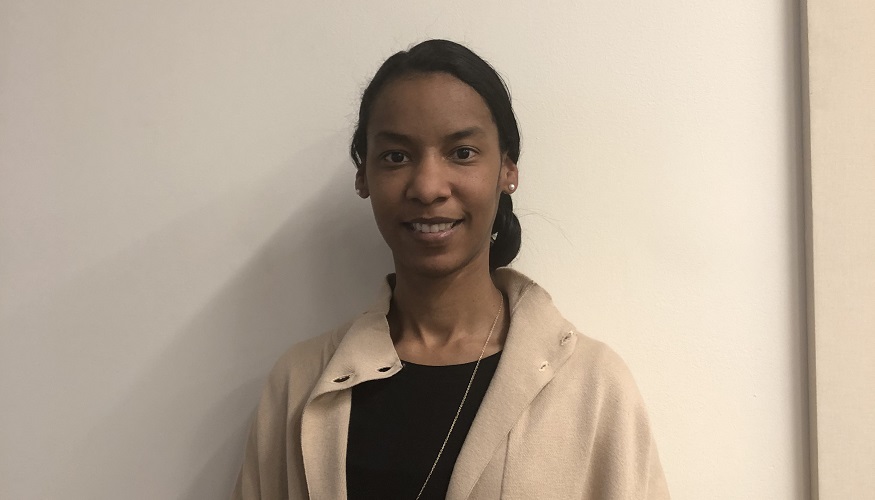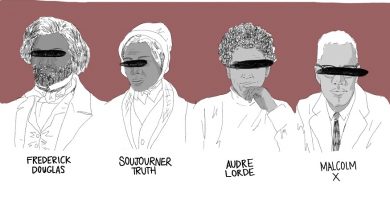Black Women, Workers, and Seattle’s Civil Rights History
The Two Roots of Revolutions: Black Women, Workers, and Seattle’s Civil Rights History, hosted by guest lecturer Quin’Nita Cobbins- Modica, covered the hardships of African American workers within the American labor system, with a special emphasis placed on workers in the Seattle area. The event was held on Feb. 13 in professor Michael Honey’s classroom, located in BB104, during his course Black Labor in America. UW Tacoma members were also invited to attend.
Cobbins-Modica, a 2018 UW graduate with a P.h.D, currently teaches at Gonzaga University. Her dissertation is about African American women in Seattle and their political activism. Cobbins-Modica outlined how working African American women initially formed unions, what type of labor African American women were doing during WWII, and their economic struggles for freedom post WWII. She also discussed that geographically, the majority of African Americans were situated in Central Seattle, close to the downtown area.
“In 1940, there was only 3700 African Americans that lived in Seattle, with women constituting only 43 percent of this population,” Cobbins-Modica said. “But by 1950 the population skyrocketed to 15,000, (sic) almost quadrupled.”
An important company mentioned was Boeing, which has played a significant role in where African American women have worked. Although Boeing is considered the largest employer in the Pacific Northwest, Cobbins-Modica shared with the audience how the company has discriminated against African Americans through their refusal to hire people of color.
“It was not until the Executive Order 8802 by Franklin Delano Roosevelt and Civil Right groups in Seattle that pressured Boeing to opens it doors to Blacks,” Cobbins-Modica said.
The first African American to work at Boeing was Florise Spearman — a woman. At the time, Boeing was hiring more women than men.
“They saw Black women as being more exploitable than Black men [because Black women] would not protest…” Cobbins-Modica said.
Cobbins-Modica also had attendees analyze the poem “Working at Boeing” by Geraldine Williams. Williams shared her poem with the Northwest Enterprise in 1944, the only African American newspaper during the 1940’s.
Certain words and sentences in Williams poem such as her liking the “swing shift,” “I’ll keep working till they terminate me,” and “I won’t give up, for my husband is over sea” helped for readers to understand the night shifts Williams had to work at Boeing to earn more money while her husband was fighting in the war.
“She [Williams] knew that once the war was over that they [African American women] would be the last hire and the first fire, and that’s exactly what happened,” Cobbins-Modica said.
One of Cobbins-Modica’s slides showed the political struggles of African Americans after WWII, including how the Seattle Ladies Auxiliary — known as BSCP — instituted a political campaign for the purpose of bringing an end to employment discrimination in Washington State. This made it possible for national leaders such as Asa Philip Randolph to contribute to the possibility of a Fair Employment Practices Committee, and issue the FECP bill.
“In 1949, the leadership of African American women, helped to force the states legislature to pass a fair employment practices law that prohibited employment discrimination,” Cobbins- Modica said. “I believe Washington State was one of few to do so during this period.”
To tie the talk into current issues, Cobbins-Modica mentioned the president of the Coalition of Labor Union Women of Washington State, Jacquie Jones Walsh. Cobbins-Modica shared that Walsh is trying to get the signatures needed for the I-1000 initiative to appear on the next ballot. Walsh also went to the capitol for the support of the House bill 6406, which “restores fair treatment to underserved groups in employment, education and contracting,”as stated in the slide.
“I wanted you [audience] to see the progression of Black women’s labor organizing over time in the earlier part of the 20th century and these are just a few of the women … who participated in the Black labor struggle here in the Pacific Northwest,” Cobbins- Modica said.
Quin’Nita Cobbins-Modica is also an associate director and historian at the BlackPast, which covers topics such as this, and can be found here:
blackpast.org






